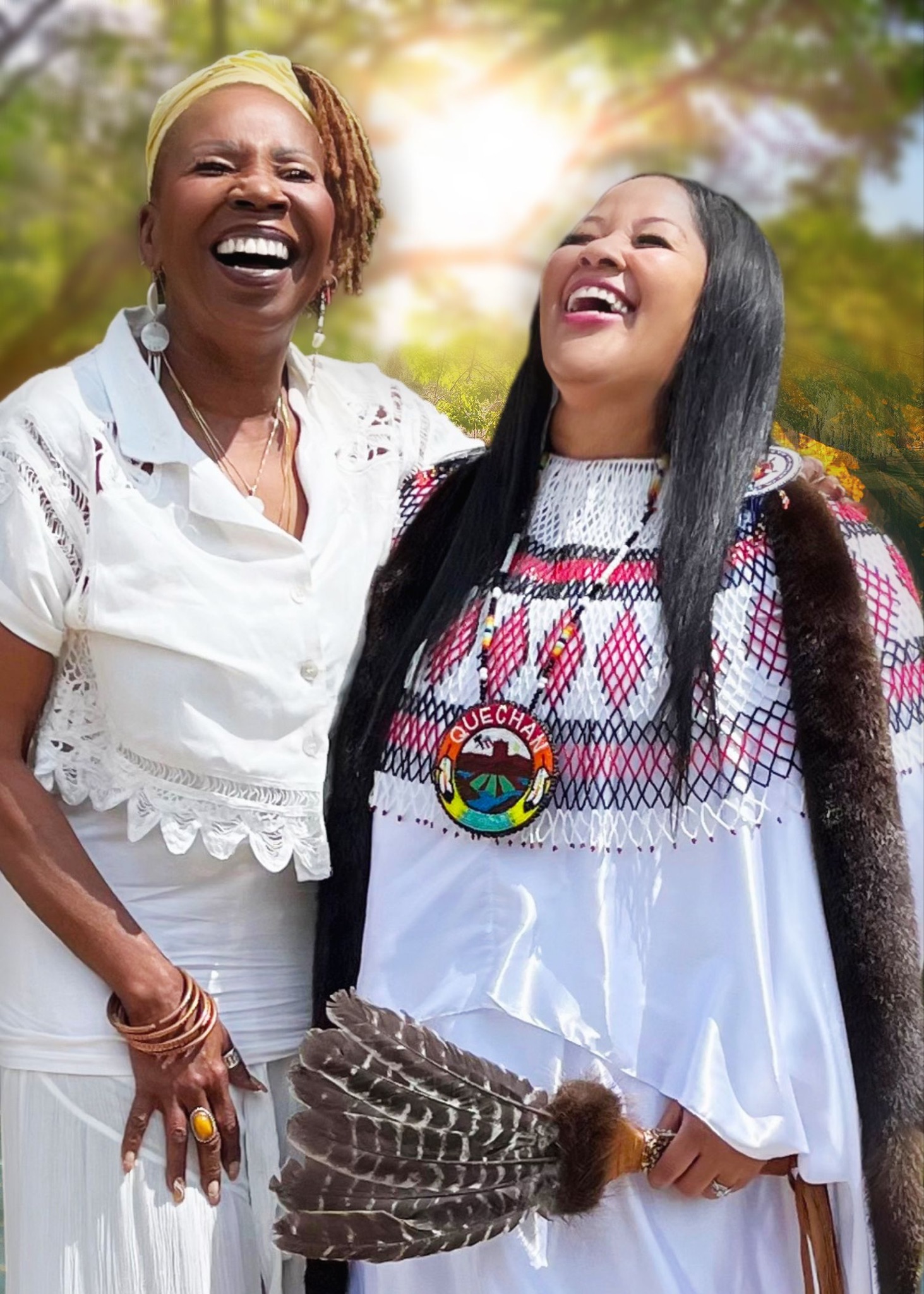Yale’s first Indigenous student body president introduces new programming and goals at the Divinity School
The first Indigenous Student Government President at the Yale Divinity School, Tamara Fore-Ravelo bases her platform around diversity and a fluid definition of divinity.

Courtesy of Tamara Fore-Ravelo
Tamara Fore-Ravelo DIV ’23 is making Yale Divinity School history as the school’s first Indigenous Student Government President, basing her platform on an increasingly fluid definition of “divinity” and a school culture that uplifts underrepresented voices in American faith.
Since its founding in 1822, the Divinity School has remained committed to preparing pupils for service in church and community alike, hoping to nurture the exploration of Christian academia in a global, multifaith context. It is the latter part of this mission — to cultivate consciousness of religious diversity — that Fore-Ravelo said needs work and which she looks forward to zoning in on as the leader of the student body.
“We are all in the process of healing from the brokenness in the world — the pandemic, the shootings, the [post-traumatic stress disorder],” Fore-Ravelo said. “I’m really an unconventional president. What I’m bringing in — aside from intellectualism — is heart. My platform aims to do healing work and bring light to campus.”
The first step, Fore-Ravelo said, is recognizing that this healing is not only an individual process. Knowing that many of her peers are still recovering from the pandemic and national upheaval of the past few years, her platform is centered on strengthening interpersonal relationships, as well as the role that people play in nature’s greater ecosystems.
Among the initiatives that Fore-Ravelo and her team are heralding this year is a speaker series called “Name It, Heal It,” where she invites global advocacy greats to engage students in conversations about diversity and leadership. Speakers will hail from across backgrounds and disciplines, and include a U.S. poet laureate, a heavyweight boxing champion, authors and pastors. After months of planning, the series will officially kick off on September 21, featuring Fore-Ravelo’s own personal mentor Iyanla Vanzant — an American celebrity motivational speaker and spiritual educator — as the first guest.
“Since the YDS is a Christian school, it can be quite difficult for others of other faiths to see themselves affirmed,” said Edwin Pérez Jr. DIV ’24, an Andover Newton Seminary Representative to the Yale Divinity Student Government.
Pérez highlighted the importance of telling local stories and the stories of “people on the underside of history.”
These conversations about race and inequity at the YDS are not new ones. In January 2022, Yale Divinity School Dean Gregory Sterling acknowledged the school’s historical complicity with racism, announcing a $20 million social justice scholarship fund to welcome Black and underrepresented students to the school.
Fore-Ravelo emphasized that beyond serving as a liaison for the student body at YDS and capitalizing on marginalized perspectives, she is looking to change how the rest of Yale views the Divinity School, its people and its goals. She said she understands that the Divinity School can often feel very “religious” and isolated from the rest of an academically-driven campus, but said that the principles taught there can be applied regardless of one’s career and academic trajectories; she said that ultimately, a spiritual education is about building people up.
In an interview with the News, Vanzant echoed Fore-Ravelo’s sentiment that divinity and the sciences merit unity. She said she felt disappointed in how unclear of a definition the word “divinity” has at Yale. Divinity is not just religion and it is not just culture, Vanzant said — the traditional qualifications used to determine whether something is “divine” or not comes from a European construct of an all-seeing, all-powerful being.
As a Black spiritual leader working in a field she described as dominated by white male voices, Vanzant said that any school that offers a divinity program, including Harvard, Yale and Princeton, must be held accountable for integrating diversity into their curriculum, as well as for eroding the boundaries that divide academic disciplines.
“Because the constructs of male dominance and superiority are falling apart,” Vanzant said. “I encourage the Divinity School to be attentive, conscious and deliberate about sharing with the rest of the body what their mission is, and how they’re training leaders today to take the concepts of divinity into the myriad of arenas of living.”
The Yale Divinity School is located at 409 Prospect St.







